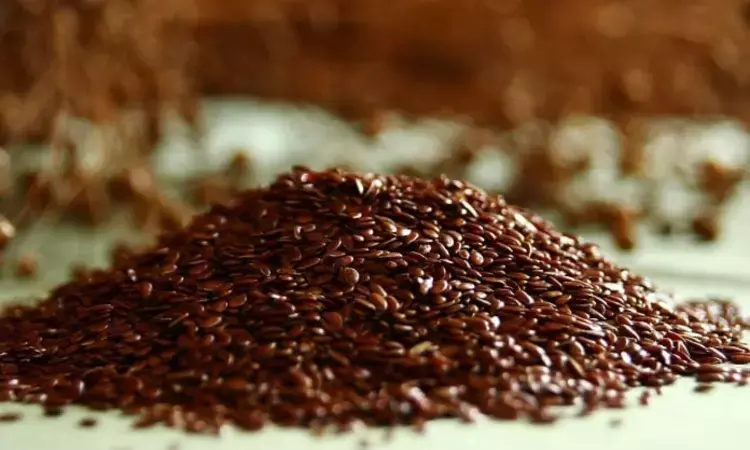- Home
- Medical news & Guidelines
- Anesthesiology
- Cardiology and CTVS
- Critical Care
- Dentistry
- Dermatology
- Diabetes and Endocrinology
- ENT
- Gastroenterology
- Medicine
- Nephrology
- Neurology
- Obstretics-Gynaecology
- Oncology
- Ophthalmology
- Orthopaedics
- Pediatrics-Neonatology
- Psychiatry
- Pulmonology
- Radiology
- Surgery
- Urology
- Laboratory Medicine
- Diet
- Nursing
- Paramedical
- Physiotherapy
- Health news
- Fact Check
- Bone Health Fact Check
- Brain Health Fact Check
- Cancer Related Fact Check
- Child Care Fact Check
- Dental and oral health fact check
- Diabetes and metabolic health fact check
- Diet and Nutrition Fact Check
- Eye and ENT Care Fact Check
- Fitness fact check
- Gut health fact check
- Heart health fact check
- Kidney health fact check
- Medical education fact check
- Men's health fact check
- Respiratory fact check
- Skin and hair care fact check
- Vaccine and Immunization fact check
- Women's health fact check
- AYUSH
- State News
- Andaman and Nicobar Islands
- Andhra Pradesh
- Arunachal Pradesh
- Assam
- Bihar
- Chandigarh
- Chattisgarh
- Dadra and Nagar Haveli
- Daman and Diu
- Delhi
- Goa
- Gujarat
- Haryana
- Himachal Pradesh
- Jammu & Kashmir
- Jharkhand
- Karnataka
- Kerala
- Ladakh
- Lakshadweep
- Madhya Pradesh
- Maharashtra
- Manipur
- Meghalaya
- Mizoram
- Nagaland
- Odisha
- Puducherry
- Punjab
- Rajasthan
- Sikkim
- Tamil Nadu
- Telangana
- Tripura
- Uttar Pradesh
- Uttrakhand
- West Bengal
- Medical Education
- Industry
Flaxseed supplementation significantly reduces HbA1c in patients with type 2 Diabetes

China: In people with type 2 diabetes, flaxseed supplementation can significantly reduce hemoglobin A1c (HbA1c), especially in those with poorly controlled blood sugar levels, systematic review and meta-analysis of randomized controlled trials showed. The study findings were published in the February 2023 issue of Nutrition Research.
Flaxseed is a functional food owing to its high content of dietary fibres, lignans, alpha-linolenic acid, and other substances that may be beneficial to improve cardiometabolic parameters in type 2 diabetes patients. Huihui Xi, School of Nursing, Jilin University, Changchun, Jilin, China, and colleagues hypothesized that flaxseed supplementation would improve cardiometabolic parameters in T2DM patients; however, clinical trials have yielded conflicting results. Therefore, the authors performed a systematic review and meta-analysis to determine the impact of flaxseed supplementation in type 2 diabetes mellitus (T2DM) patients.
For this purpose, the team systematically searched the online databases for randomized controlled trials until 25 March 2022. In total, 13 studies were included.
The study revealed the following findings:
· Flaxseed supplementation significantly reduced hemoglobin A1c (HbA1c) in participants with T2DM compared with the control group. In contrast, it had no effects on body weight, body mass index, blood pressure, fasting blood glucose (FBG), homeostatic model assessment for insulin resistance, quantitative insulin sensitivity check index, and lipid parameters.
· In the subgroup analyses, FBG was significantly reduced with flaxseed supplementation in participants with baseline FBG ≥8.0 mmol/L or baseline HbA1c ≥7.0%. And a significant decrease in HbA1c in participants with baseline HbA1c ≥7.0% after flaxseed supplementation.
· Subgroup analyses indicated that whole flaxseed supplementation significantly increased high-density lipoprotein cholesterol and reduced total or low-density lipoprotein cholesterol in participants with T2DM.
To conclude, flaxseed supplementation remarkably reduced HbA1c in patients with type 2 diabetes, particularly those with poorly controlled blood sugar levels.
"Larger scale studies with better designs are needed to confirm insignificant and ambiguous findings," the researchers wrote.
Reference:
Xi, H., Zhou, W., Sohaib, M., Niu, Y., Zhu, R., Guo, Y., Wang, S., Mao, J., Wang, X., & Guo, L. (2023). Flaxseed supplementation significantly reduces hemoglobin A1c in patients with type 2 diabetes mellitus: A systematic review and meta-analysis. Nutrition Research, 110, 23-32. https://doi.org/10.1016/j.nutres.2022.12.008
Dr Kamal Kant Kohli-MBBS, DTCD- a chest specialist with more than 30 years of practice and a flair for writing clinical articles, Dr Kamal Kant Kohli joined Medical Dialogues as a Chief Editor of Medical News. Besides writing articles, as an editor, he proofreads and verifies all the medical content published on Medical Dialogues including those coming from journals, studies,medical conferences,guidelines etc. Email: drkohli@medicaldialogues.in. Contact no. 011-43720751


